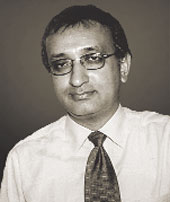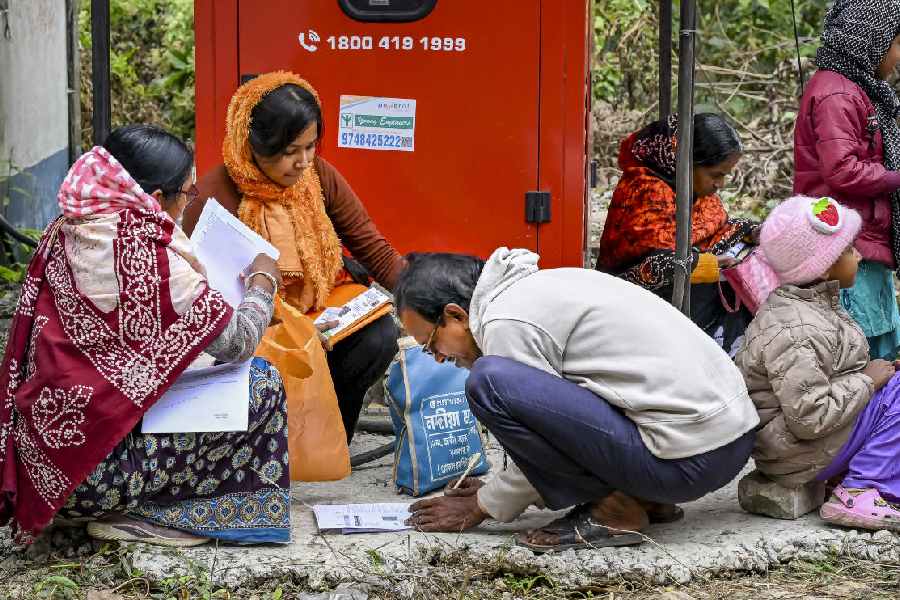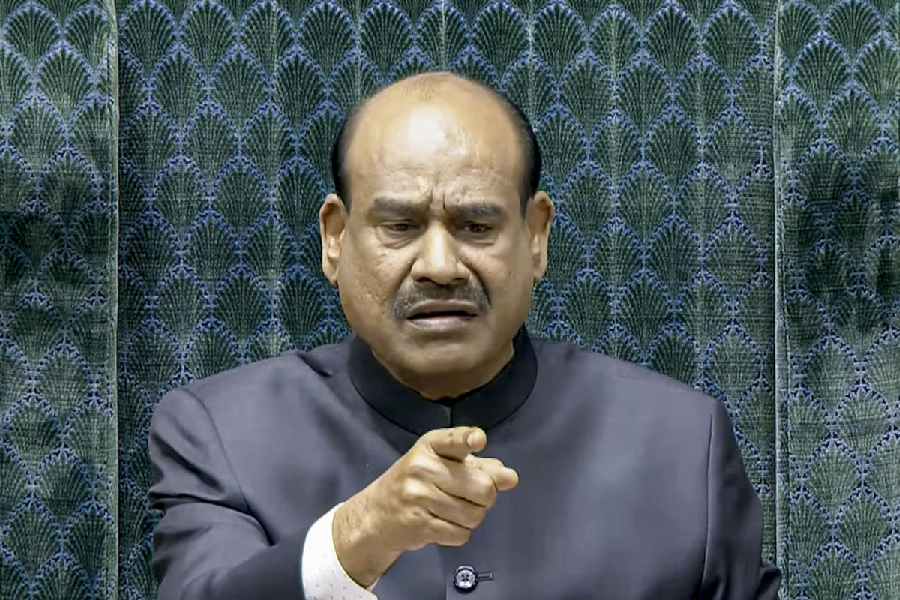 |
| Srikant Sastri Managing director and co-founder, Solutions |
He loves to spend time with his two little kids, apart from which he claims to do very little outside “work”. But he has, nevertheless, an active interest in current affairs, autobiographies and politics. Meet Srikant Sastri, managing director and co-founder of Solutions, a leading integrated marketing services provider in India.
The adage about when there’s a will, there’s a way was perhaps never exemplified better. “Having seen educated people like my father work under others who were far less competent made me decide ? quite early in life ? to do my own thing,” he says. The move to the Indian Institute of Management Calcutta from the Indian Institute of Technology Kanpur ? instead of going to the US, which was the preferred option then ? was well thought out. “I was very clear on IIM being a better choice than a middle-rung university abroad,” he adds. “Going to IIM, unlike IIT, was by design. The learning was going to aid my entrepreneurial ambitions.”
Such clarity of thought also dictated his first job ? in the sales department at Pond’s. “I knew I wanted to rough it out initially. It gave me an opportunity to travel, meet people and imbibe lessons in managing them,” says Sastri. Having worked there for four years, he decided to gain some experience of branding. “However, I did not want to be a brand manager and just concentrate on one brand,” he says. So he joined Tara Sinha-McCann Erickson as account director, where things, he says, started “falling into place”.
Advertising guru Tara Sinha asked him to set up and run Result Mckann, her marketing services division, where he was given a free hand and a 20 per cent ownership. According to him, “It was then that I saw the opportunity in marketing services. I instinctively knew its great potential.”
But things changed soon after. Sinha left and the new owners were not ready to support the venture financially. “It was then that I got 15 of my colleagues together, and we decided to go for it!”
Raising capital meant stretching things to the limit. They borrowed money and leveraged their credit cards. Sastri sold his car and also took out all the money from his Provident Fund.
Solutions was born.
There have been testing times, the toughest of them being in 2000 when the IT and telecom industries went through a slump. Solutions ? which focuses on one-to-one marketing, events, promotions and retail and trade across India and the Asia-Pacific ? had many clients in both these industries and they cut back their spends. Suddenly, things changed. “Employee salaries were getting delayed by a month, we hadn’t drawn salaries for months and suppliers were getting agitated,” he reminisces. In fact, one supplier even held him by the collar in office.
But giving up was never an option. “There were people dependent on us. It was a question of responsibility and a matter of pride to not walk away a failure,” he says.
Today, Solutions, which was set up in 1995, earns 15 per cent of its revenues from foreign markets and is a pioneer in its field in India. “I have often experimented and worked on instinct,” says Sastri. “Sometimes it pays off, sometimes not. For example, setting up a large call centre in 1999-2000 to interconnect all cities via lease lines was a plan that did not yield results. On the other hand, a Hewlett-Packard project which involved setting up 400 digital studios nationwide was a satisfying and successful one.”
There is some sense of sobering down today, though innovation remains a priority. Also, some 40 employees have been granted stock options. Now, when the Publicis Group has a 60 per cent stake in Solutions, they all stand to make some serious money. “I also believe in an egalitarian culture,” he says, having picked up his lessons rather early in life during his days at Central School in Ambarnath, Maharashtra. “I also prefer to stay off a project if the person in charge is competent,” he adds.
The Publicis stake, he stresses, is an example of foresight. “In our kind of business, the margin of profits is not exceedingly high. By tending to Publicis’ clients, we can build our international business better,” he says.
In a field where ventures have a high mortality rate, survival is indeed a test. Sastri would like to believe that he’s taking decisions with the next 10 years in mind. “It’s what you make of a place, not what it makes of you,” he concludes.
Based on a conversation with Sanmitra Gupta in New Delhi










